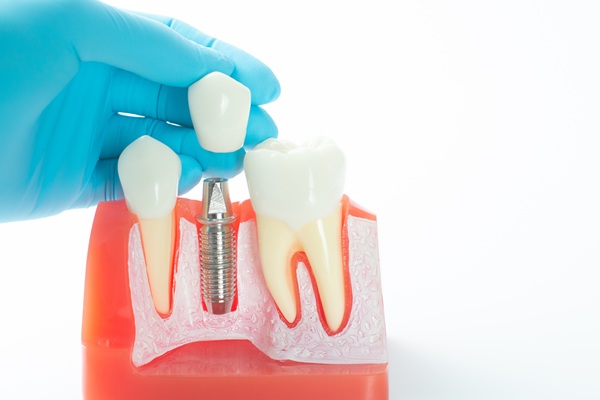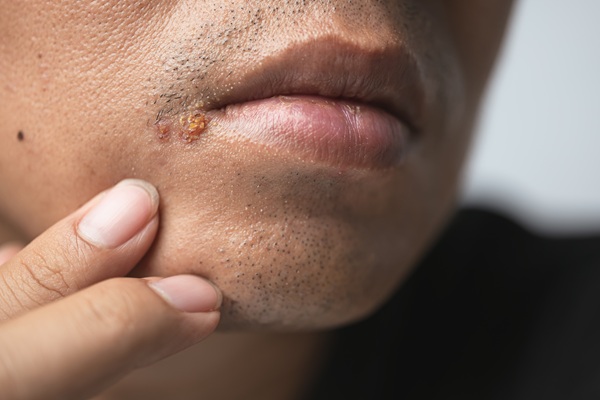The Implant Supported Denture Process From Start To Finish

Considering getting implant supported dentures to replace your missing teeth? This tooth replacement option offers benefits that other denture types cannot. Read on to learn more about the process.
Implant supported dentures
This denture choice is different from other dentures in that it uses dental implants in order to keep the dentures securely in place. This allows wearers to perform their everyday functions, like eating and talking, without worrying about whether their dentures will shift around in their mouth, become loose or even fall out.
The process of placing implant supported dentures
The information below is about what someone can expect to undergo when choosing implant supported dentures to take the place of their missing teeth.
Consultation appointment
It is necessary to first make a consultation appointment, as this allows the dental professional to thoroughly examine the patient's mouth. The patient must be approved to undergo the surgical placement of implants. Once the patient is approved, impressions will be taken of their mouth, as well as X-rays. These dental services are necessary so a dental professional can see the patient's bone structure, as the implants will be surgically inserted into the patient's jawbone.
Dental implant surgery
The patient is now ready to undergo the process of having their dental implants placed. Even though implant placement is a minor surgical procedure, patients will still be given either a local or a general anesthesia. Next, small incisions are made in the gum areas where the implants will be placed. A small hole is then drilled into these locations in order to create a place for the implant to be placed. Once the implants are placed, the patient will receive a few stitches in order to close the incision areas. It will take somewhere between three and six months for the patient to heal from this surgical procedure.
Placing caps and abutments
Once the patient has completely healed, they will need to undergo another minor surgical procedure in order to have caps placed on the top of the implants. The purpose of these caps is to prevent the gums from healing over the top part of the implants. In the next week or two, the patient will need to return in order to have abutments placed on the upper part of their implants. Abutments are necessary to hold the cap securely in place and connect the dentures to the implants.
Attaching the dentures
Patients can choose to have bar-retained implant supported dentures or ball-retained implant supported dentures, which is simply a matter of preference. Once the dental professional attaches the bar or ball to the abutments, the patient now gets to try out their new dentures. Since the implant supported dentures are custom made for them, they can expect their dentures to fit them well and be comfortable. If any adjustments need to be made to the dentures, the patient simply needs to let the dental professional know so they can make any necessary adjustments.
Got questions?
Those who have questions can write them down and bring them to their consultation appointment so they can get the answers that they need to make the right decision. While the process of placing implant supported dentures can take a while to complete, those who have already undergone the process say that it is worth the time.
Are you considering implant supported dentures in the Oakland area? Get more information at https://dentalimplantsoakland.com.
Check out what others are saying about our dental services on Yelp: Implant Supported Dentures in Oakland, CA.
Recent Posts
Considering implant supported dentures? This hybrid tooth replacement option is one that has grown in popularity over the years. It offers individuals with an entire arch of missing teeth a replacement option that provides stability, good aesthetics and an overall healthy jaw. These benefits make implant supported dentures an option to highly consider. Keep reading…
Treatment plans for implant-supported dentures vary depending on many factors. One of these factors is whether the full-arch restoration targets the upper or lower jaw. You may be thinking: does it matter which dental arch the implants sit in? The answer is yes it does.The upper and lower jaws have different qualities and anatomies. For…
The term All-on-4® refers to a more convenient alternative than conventional dentures. It involves installing dental implants into the patient’s jaw to serve as the base for a special type of dentures that are fixed in place.Traditional dentures are the most affordable way to replace missing teeth, but they have issues like poor stability. This…
Anyone researching tooth replacement is probably going to come across the term All-on-4®. However, most people may not know what this procedure is or what it can mean for them. For those who have multiple teeth missing or are going to have a procedure to remove multiple teeth, understanding the options is important. As you…


